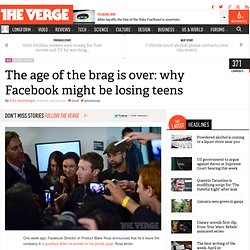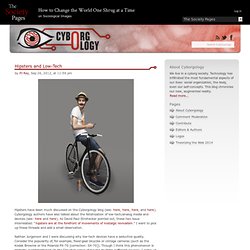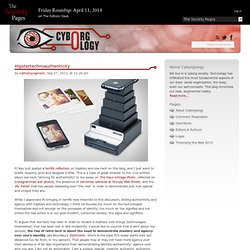

Vous faites chiez avec #OLD. Vous me faites chier avec #OLD.

On dit qu’on aime quelque chose, il se trouve toujours un esprit avisé pour vous dire #OLD ! C'est pour rendre service bien sûr. On recommande un musicien, il se trouve toujours un plus branché pour vous expliquer que les Ramones avaient tout dit avant tout le monde. On fait une blague, un esprit mal intentionné vous explique que vous l’avez pillée. Vous me faites chier avec #OLD. Cette façon de diéser #OLD sur Twitter ca fabrique et promet une #OLD Génération qui ressemble à s’y méprendre à une BOF génération, celle-là même qui se pique d'éclairer l'avenir et qui tacle la moindre redite parce qu'elle a accès illimité à la mémoire. Heureusement que 2 et 2 qui font 4 est OLD et qu'on peut encore le passer à son voisin, zin. Laissez la génération suivante et tous les ignorants dont je suis ouvrir des yeux ronds,ronds d'étonnement et de surprise. Foutez nous la paix, avec #OLD. OLD is GOLD. The age of the brag is over: why Facebook might be losing teens.
One week ago, Facebook Director of Product Blake Ross announced that he’d leave the company in a goodbye letter he posted on his profile page.

Ross wrote: "I’m leaving because a Forbes writer asked his son’s best friend Todd if Facebook was still cool and the friend said no, and plus none of HIS friends think so either, even Leila who used to love it, and this journalism made me reconsider the long-term viability of the company. " A few sentences later, Ross wrote, "In all seriousness, even after switching to part-time at Facebook, it’s just time for me to try new things," but the damage was done.
Ross has since removed the letter, perhaps because he’d accidentally posted it publicly, or because his jesting intro wasn’t taken as lightly as he’d hoped. The "journalism" Ross mentioned is hardly Pew Research, but it means something. Teenspeak When Branch co-founder Josh Miller asked his fifteen-year-old sister what was hot, she said Facebook had gone cold. Hipsters and Low-Tech. Hipsters have been much discussed on the Cyborgology blog (see: here, here, here, and here).

Cyborgology authors have also talked about the fetishization of low-tech/analog media and devices (see: here and here). As David Paul Strohecker pointed out, these two issue interrelated: “hipsters are at the forefront of movements of nostalgic revivalism.” I want to pick up these threads and add a small observation. Nathan Jurgenson and I were discussing why low-tech devices have a seductive quality.
Consider the popularity of, for example, fixed-gear bicycles or vintage cameras (such as the Kodak Brownie or the Polaroid PX-70 [correction: SX-70]). Žižek is often cited as the philosopher of the hipster or the hipster philosopher, but, here, I argue that Simmel and Deleuze were the true Oracles of Hipsterdom. So, hipsters are the product of a moment in history where the socio-economic system benefits from and has discovered effective methods to enforce the moral imperative to “be unique.”
Low-tech Practices and Identity « The Frailest Thing. Hipsters, low tech, and the quest for authenticity — what do we make of the interplay among these three phenomena?

In two recent posts at Cyborgology, P. J. Rey and Nathan Jurgenson addressed this question in an exchange of overlapping perspectives with competing points of emphasis. I encourage you to read each piece, but here is how I would characterize their respective arguments. Rey, for his part, advanced the thesis that hipster fixation on lo-tech gear is mostly about achieving a sense of mastery over technology, a mastery that is mostly unattainable over more complex contemporary technology. “The hipster low-tech fantasy–”the dream of the 1890s“–is one of escape from the complex socio-technical systems that we are highly dependent on but have little control over.
In his response, Jurgenson argues that Rey is focusing on the wrong thing. Hipstertechnoauthenticity. PJ Rey just posted a terrific reflection on hipsters and low-tech on this blog, and I just want to briefly respond, prod and disagree a little.

This is a topic of great interest to me: I’ve written about low-tech “striving for authenticity” in my essay on The Faux-Vintage Photo, reflected on Instagrammed war photos, the presence of old-timey cameras at Occupy Wall Street, and the IRL Fetish that has people obsessing over “the real” in order to demonstrate just how special and unique they are. While I appreciate PJ bringing in terrific new theorists to this discussion, linking authenticity and agency with hipsters and technology, I think he focuses too much on the technologies themselves and not enough on the processes of identity; too much on the signified and not where the real action is in our post-modern, consumer society: the signs and signifiers.